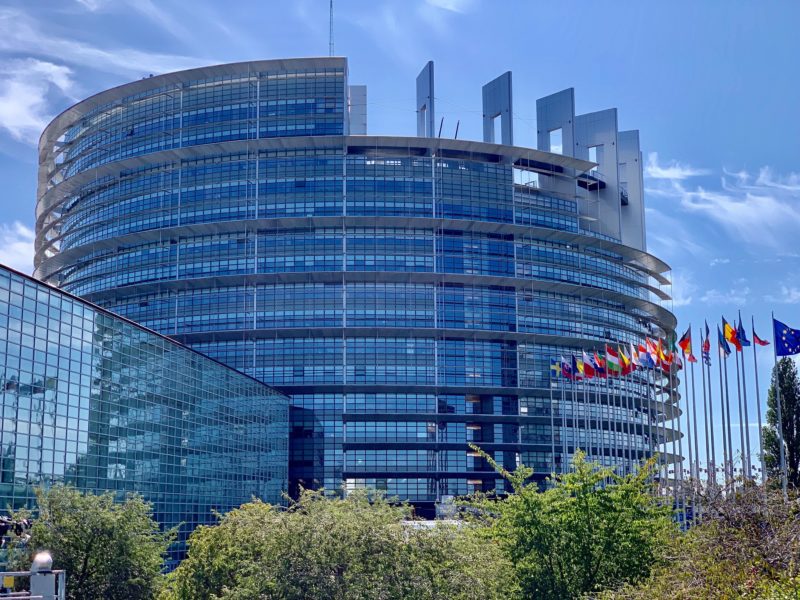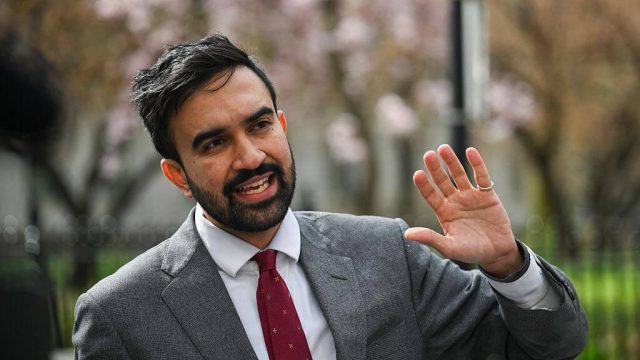European Elections: What do the results mean for green economies?
A mixed verdict on green economies and what political parties and civil society can learn from these elections.

The recent European Elections have sparked a wave of analysis and speculation about the future of green economy policies in the region. While the center has held, initial headlines, especially from right leaning newspapers, have focused on the apparent retreat of green parties in the European Parliament and the failure of net zero policies to garner public support. Alongside a surge in support for right wing parties, it could seem that the future of green policies is bleak, perhaps even suggesting a waning public interest in climate action. But this is only one distortion of the story.
Public Sentiment: A Deeper Dive
Despite the electoral results, Europeans' concern for environmental issues remains high. According to a recent European Commission survey, most Europeans feel directly affected by environmental problems, including pollution, extreme weather events, and biodiversity loss. More than three-quarters of citizens believe the environment has a direct effect on their daily life.
In a 15,000 person survey conducted in France, Germany and Poland the authors made three important findings:
1. There is no widespread backlash against climate policy. A majority of voters are concerned about climate change, they do not think climate regulation will cost them their jobs, and still wish for more ambitious climate policy.
2. Second, policy design matters, especially for the pivotal centrist voting block. Left- and green-leaning voters support almost all climate policies, while supporters of far-right parties reject nearly all of them. Things are more complicated for voters of centrist liberal and conservative parties. While this group supports ambitious climate policy in general, it is skeptical about a raft of concrete measures that would impose direct costs on them as individuals. It is important that we bring these voters on board, finding narratives that appeal to them and policies that are “fair”.
3. There is political scope for joint investment at EU level. Most voters are hesitant to support green industrial policies in other member states with national subsidies. However, they are surprisingly open to establishing a new EU-wide investment instrument, especially if it combines climate goals with other priorities, above all, economic security.
So there is consistent, increasing support for intensified climate actions and a policy pathway for more ambitious governmental action. But how can we translate support for green policies in theory into concrete demand for policies in practice? Current European leaders seem to lack the crucial political alchemy to frame and shape a winning mandate; from the jilets jeunes to the farmers’ protests, successive technocratic governments have found themselves having to retreat from environmental policies when faced with public pushback.
Green politics in context
It helps if we try to understand this apparent political shift against green in the wider context. The previous round of European parliamentary elections were held in 2019, at the height of the Fridays for Future strikes and just a couple of years on from the historic signing of the Paris Climate Agreement.

Five years later, voters have been through a global pandemic, social and economic lockdown, a war in mainland Europe, spiraling inflation, an ongoing cost of living crisis, and protracted instability in food and energy markets. Perhaps it’s unsurprising that some Green voters have shifted to left/centre-left/centre parties. Meanwhile much of the shift of centre-right voters towards parties of the more extreme right seems to have been driven by opposition to immigration, rather than antipathy to climate action.
We must remember that it is in the political interests of some parties to deny popular support for climate action, so they amplify the vocal and visual opposition of a small minority e.g. farmers protests and deny the widespread appeal of climate action, an International Public Opinion on Climate Change Survey 2023 found a majority of respondents state that climate change should be either a “very high” or “high” priority for their own governments.
While there is support for climate action, political parties have failed to create a credible and inspiring narrative and policy formulation for green economies despite its increasing relevance and urgency. For everyone but radical right voters, the relevant question remains how to find the right recipe to fight climate change and how best to engage critical audiences.
The changes required to shift to fair and green economies are so big that they require political negotiation and buy-in. These changes require those most impacted by the transition and those that are most marginalised are engaged in the process, that is why we have been calling for eco-social contracts for a fair and green economies.
For a just transformation of our economy, politicians, policy makers and climate campaigners need to start taking into consideration those who will bear its greatest costs. The realities of those impacted by the transition need to be absorbed and engaged with by climate proponents.
Doing the work of building support for green economies
Building on the recommendations of Action for Climate Empowerment to bolster support for green economies, it's essential to focus on several strategic areas:
1. Education and Youth Engagement: As highlighted by the UNFCCC, education plays a crucial role in building a sustainable future. Empowering youth with knowledge and tools to engage in climate action ensures long-term commitment to green policies. Initiatives around future generations are a critical foothold for transformative efforts to reframe our obligations and commitments.
2. Inclusive Policy Design: Policymakers must strive to design climate policies that are not only effective but also socially equitable. This involves the use of social contract mechanisms to ensure policies reflect the needs and concerns of diverse communities. We need policies that optimise environmental goals with economic and social considerations.
3. Clear Communication: Transparent and consistent communication about the benefits of green policies for people and the planet is crucial. This includes highlighting success stories, such as job creation in the renewable energy sector and improved public health outcomes from reduced pollution and the use of compelling framing.By connecting the dots through engagement between policy actions and tangible benefits, we can foster greater public buy-in.
4. Innovation and Adaptation: Encouraging innovation through industrial strategies for green sectors, technologies and practices can provide practical solutions that make sustainable living easier and more attractive. Support for research and development, along with incentives for businesses to adopt green practices, can drive the transition to a greener economy and improve peoples lives and communities for the better more quickly.
5. Building Resilience: As climate impacts become more pronounced, policies must focus on building resilience in communities and protecting the most vulnerable. This includes reshaping the financial architecture to enable investing in infrastructure that can withstand extreme weather events and supporting local initiatives that enhance environmental and economic sustainability.
- Jean McLean, GEC


